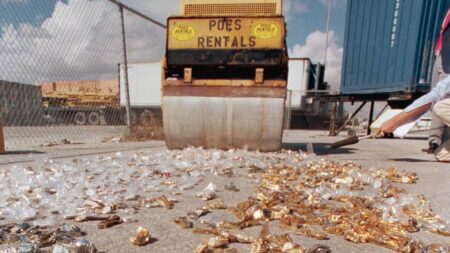Ginni Saraswati is an entrepreneur, award-winning media personality, CEO of Ginni Media and cofounder of Metro Podcast Studio.
As we transition from a tumultuous 2024 into 2025, many entrepreneurs find themselves in an uncomfortable liminal space. The pressure to hit the ground running with ambitious plans on January 1st remains pervasive in modern business culture. However, many of our goals and aspirations don’t come to fruition. We know this because numerous studies have shown us that statistically, New Year goal setting doesn’t yield results.
In my experience, this is largely because we don’t account for potential obstacles that might get in our way. One study defined this phenomenon as psychological distance. This distance is the gap between how we perceive a goal in the distant future versus the abstract future. I’ve found in my own career that people are less likely to be successful in long-term goal pursuits when they don’t plan for obstacles. That’s why it’s important to take a more holistic, measured approach.
The Holding Pattern
The winter lull many professionals encounter is similar to what pilots call a “holding pattern.” That’s when a plane circles the airport, awaiting clearance to land. This metaphor captures what many leaders experience in the first quarter of the year: a sense of suspension, waiting for permission to fully engage with the new year’s potential.
This holding pattern often manifests in subtle yet consequential ways. Mornings can feel different this time of year, with the snooze button getting exercised more than usual. When the morning routine falters, the cascading effect compromises the ability to tackle priorities. Self-negotiation grows more challenging, and the discipline that served you well in Q4, or any previous quarter for that matter, is nowhere to be found.
The evening hours often tell a similar story—binge-watching replaces strategic reading, creating a perfect storm of restless sleep and daytime sluggishness. This cycle produces diminishing returns on your most valuable asset: focused attention.
Embracing Emotional Intelligence
Rather than defaulting to harsh self-judgment, focus on emotional awareness. These patterns you’re experiencing can provide valuable information. They suggest that the rhythm that was present previously simply isn’t sustainable in the current season. Recognizing this shift represents heightened emotional intelligence, not weakness or laziness.
Holding patterns cannot be sustained indefinitely. Like an aircraft that eventually depletes its fuel reserves, your mental and physical energy has limits. The counterintuitive solution isn’t adding more to your plate but rather intentionally simplifying your approach. You can achieve this by carving out time for reflection.
Three Ways To Reflect And Refuel
1. Accept seasonal adaptations.
This might mean adjusting expectations about your winter schedule. Perhaps a 6:30 AM start time that energized you in the fall feels punitive during these shorter days. I’ve found that simplifying your morning routine to three essentials—hydration, movement and prioritization—can create a foundation that honors this seasonal shift while maintaining momentum.
2. Reject arbitrary timelines.
Reject the arbitrary timeline of New Year’s resolutions and remember that meaningful goals emerge from authentic reflection, not calendar pressure. In my experience, this perspective can allow you to create intentional objectives aligned with your organization’s natural rhythms and your personal capacity.
3. Create sustainable momentum.
When feeling overwhelmed by competing priorities at the start of the year, identify one small shift that can create momentum. Maybe it’s establishing a digital sunset before bedtime, or implementing a five-minute walk or mindfulness practice between meetings.
Permission To Land Gradually
With mental health rightfully becoming more woven into our professional lexicon, it’s important to remind yourself that emotional expression deserves space. Releasing accumulated tension can provide the clarity needed for making better strategic decisions. I’ve found that emotional honesty in leaders can not only help them but also provide a sense of psychological safety for their teams.
As entrepreneurs, the inclination toward action serves us well—except when it doesn’t. To strategically pause takes discipline. Not defaulting to action gives us the opportunity to wait for clarity before accelerating. Think of this beginning-of-the-year phase as a mental accounting period that will lay the groundwork for a more focused, productive and holistically successful year ahead.
Forbes Business Council is the foremost growth and networking organization for business owners and leaders. Do I qualify?
Read the full article here











